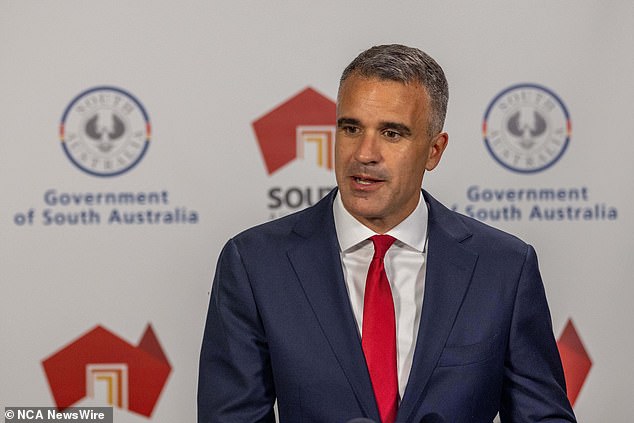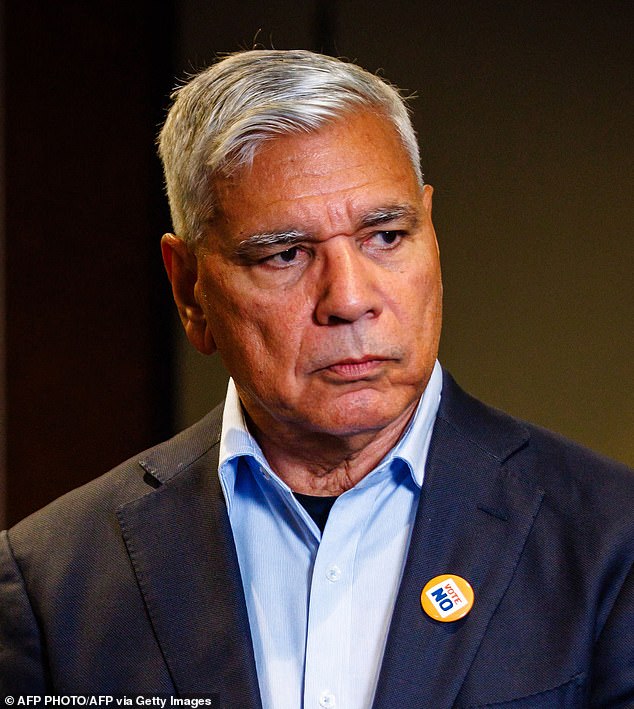South Australia’s Indigenous Voice Parliament has been branded a “joke” and a “farce” after less than 10 per cent of those eligible voted, meaning some candidates were elected with just six votes.
Of the 27,534 Indigenous peoples registered on South Australia’s electoral roll, only 2,748 votes were cast for the 46 people chosen from 113 candidates for the new State Voice in polls conducted at the end of March.
Despite the low turnout, the state Labor government led by Peter Malinauskas declared the election a “success” as it prepares to spend $10.3 million on the advisory body over the next four years.

Crowds gathered outside South Australia’s parliament in Adelaide when the Voice laws were passed in March.
Voice members will receive stipends of $3,000 to $18,000, attendance fees of $206 per meeting plus travel, lodging and subsistence allowance.
They will also receive $1,000 each for a new laptop.
The Voice’s role is to advise on legislation relating to indigenous peoples and to highlight the concerns of the different communities represented, but it need not be limited solely to Aboriginal issues.
To elect the initial 46 members, the state was divided into six regions and there were quotas on how many male and female representatives could be chosen for each.
The six local Voices will elect two representatives to the 12-member Voice of South Australia’s parliament.
Unlike the proposed federal Voice, which failed to gather enough support in October’s national referendum, the state version has no constitutional recognition, meaning it can be ruled out by a simple parliamentary vote.
South Australian Liberal senator Alex Antic called on the Malinauskas government to do just that in federal parliament last week.
“Despite more than 64 per cent of South Australians rejecting the Federal Voice to Parliament, the South African Labor Party pressed ahead with a legislated State Voice,” Senator Antic said.
‘A tiny voter turnout and a cost to taxpayers of $10.3 million over the next four years make this a completely pointless exercise.
“The SA Voice is an irrelevant bureaucratic farce that must be repealed.”
Senator Antic predicted that the agency would be staffed with “well-paid bureaucrats who would attend team meetings with PowerPoint presentations and a series of clever buzzwords.”
“I suspect there will be a lot of country recognition and requests for government funding and not much else,” he said.


South Australia’s Labor government, led by Premier Peter Malinauskas (pictured), has declared the Voice election a “success”.
Warren Mundine, leader of the No campaign, also described the new body as a “joke” and a “farce”.
“These Labor prime ministers and senior ministers are just pushing this line… that Aboriginal people want these things,” he told Sky News interviewer Andrew Bolt on Monday.
‘This is all a farce.
‘Aboriginal people just want to get on with their lives, they are proud of their Aboriginality, proud of who they are. They just want jobs and education.
‘Why are they spending all this money on things Aboriginal people don’t even want.’
Mundine said that rather than addressing real issues affecting Indigenous communities, such as crime, substance abuse and unemployment, the Voice was an example of “virtue signaling that makes it look like we’re doing something”.
He said the real key to improving the lives of indigenous people was starting businesses that provided employment. “Stop fooling around with things that have never worked in the past and never will,” he said.
‘They keep bringing (the Voice) back. They’re like zombies: you think you’ve stabbed them and they keep coming back to you.
“How can you call yourself a representative with six votes?”
South Australian Aboriginal Affairs Minister Kyam Maher downplayed the low turnout saying it was “a successful first election.
“More than 2,000 South Australian First Nations people voted for South African First Nations Voice to Parliament in a successful first election,” Mr Maher said in a statement.


Warren Mundine, leader of the federal No Against Voice campaign, was unimpressed with SA’s version.
‘This strong first result provides a platform for the Voice to grow, particularly with future elections coinciding with regular state elections.
“This is also in line with the range of votes cast in the South Australian elections for the former Aboriginal and Torres Strait Islander Commission in the 1990s.”
The winning candidate for the Central Region, April Lawrie, said the alphabeth The result of the federal Voice referendum created a lot of uncertainty for the state body.
While Ms Lawrie admitted there is “a lot of work to be done in terms of promoting this”, she called for the Voice to be “given a chance” and believed it would “gain momentum”.
‘It is the first one. “Give our community a chance to see how this goes,” she said.
“Once our community is informed and engaged with the concept of Voice and the reality that it is here, this is our opportunity now, as a collective and representative Voice, to find ways in which we spread that information.”
Lawrie said she was “really excited” to become an elected representative.
“It’s quite significant because I think for South Australia we are the first jurisdiction to create… a First Nations Voice,” he said.
Crowds gathered outside South Australia’s parliament to welcome the creation of Voice when it was passed in March last year.
